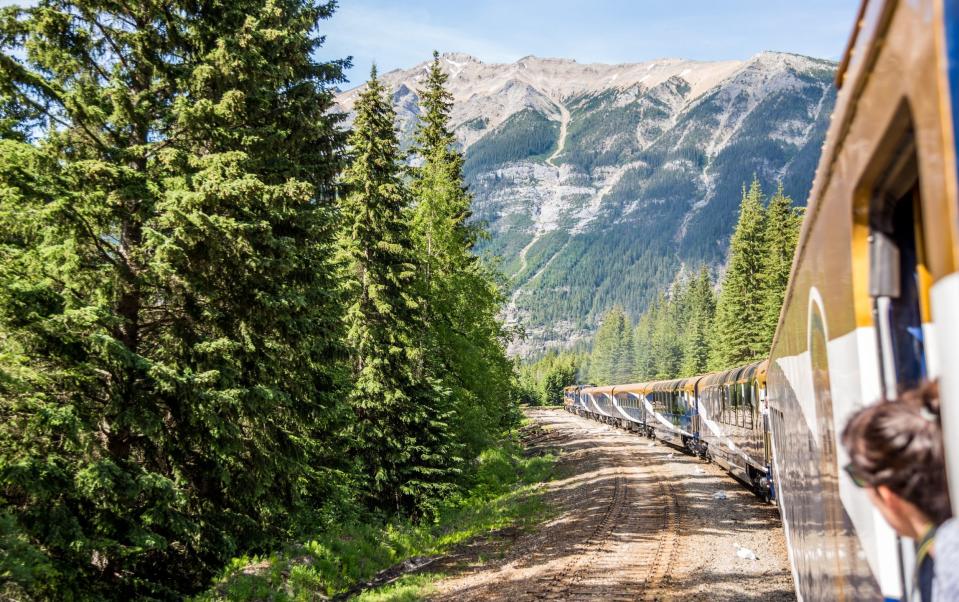Travel to Canada: latest Covid rules and practical guidance

Canada is loosening its testing rules for visitors. From February 28, fully vaccinated travellers randomly selected for a Covid test on arrival will no longer be required to self-isolate pending the result of the test. In addition, travellers will be able to show proof of a recent negative antigen test in instead of a more costly PCR test.
Unlike the UK, Canada has broadly retained or consolidated many rules with regard to masks and the need to show a digital or paper QR proving vaccination status for entry to many, but not all public spaces and events.
However, the situation is complicated by Canada’s federal system, so that federal oversight is applied to aviation, for example, but individual provinces largely have responsibility for health measures. Regional or municipal authorities can also change rules within provinces and Territories. This means different areas are moving at different speeds with regard to the relaxing of rules and mask and QR passport requirements.
In general, though, there is still much common ground in two areas. The first is the provincially mandated wearing of masks in many indoor (and occasionally outdoor) public spaces such as bars, restaurants, shops, museums and public transport. The second is the requirement of QR-based “passports” for entry to many public spaces and public events and entertainment venues.
However, the lists of places and situations where a QR pass is and is not required are long and complex, and vary across the country: see the links below for details. Individual provinces have also introduced their own QR schemes alongside a federal QR vaccine passport. Alberta has dropped its requirements for vaccine passports and other provinces, notably Manitoba and Saskatchewan have indicated an intention to dispense with passports “in the very near future”. Some provinces such as Ontario also require a QR proof of vaccine exemption on medical grounds: a medical note is not sufficient.
In summary, visitors to Canada should still be ready to wear a mask in most public spaces and encounters, be alert to social distancing measures – which can still vary across the country – and to carry QR-code proof of full vaccination backed up with valid photo ID in the shape of a passport or driving licence.
Can I go to Canada?
Fully vaccinated travellers can enter Canada quarantine-free for non-essential reasons, including holidays.
Those who aren't fully vaccinated must meet eligibility criteria in order to be permitted entry and face quarantine on their arrival. Entry is permitted to Canadian nationals, permanent residents, immediate and extended family of nationals or permanent residents, temporary foreign workers and international students. You can use this online tool to find out if you're eligible.
What are the rules for children?
Unvaccinated and single-jabbed children aged 12 to 17 must undergo a 14-day quarantine, and are required to take multiple tests.
Children aged 11 and under who are not double-jabbed must complete pre-entry, arrival and Day 8 tests, unless proof of recovery from Covid is provided (no older than 180 days).
Children aged four and under are not subject to these requirements.
Are flights operating?
Yes, international flights are running to cities including Calgary, Montreal, Vancouver, Toronto and Québec, with the likes of British Airways, Air Canada, Air Transat and WestJet operating the routes.
Do I need to take a test before travelling to Canada?
Yes, fully vaccinated visitors must take a pre-departure PCR test no more than 72 hours before their flights or an antigen test no longer than a day before their flight. You may be required to take another test on arrival.
Do I need to fill in any forms?
Yes, all arrivals must submit their test results and vaccination details via the ArriveCAN app or website. According to the FCDO this must also include a "quarantine plan in case it is determined at the border that you do not meet the necessary requirements". You must be ready to show your ArriveCAN receipt when seeking entry into Canada, as well as evidence that you have submitted your details digitally.
Visitors travelling to Canada by air are also now expected to get an electronic travel authorisation (eTA) to enter Canada – you’ll need this in order to board your flight.
Do I need to self-isolate on arrival?
No, not if you are fully vaccinated – however the Canadian Government requires all travellers to designate a place of quarantine in order to enter Canada. If you are not double-jabbed, but are eligible to visit Canada, you must isolate for 14 days.
Do I need to wear a mask?
The mandatory requirement to wear masks in most public spaces was relaxed in the summer of 2021, tightened again in October 2021, and is only gradually being relaxed across most of Canada. This generally means masks are still required in many workplaces, places of worship and indoor public spaces, including bars, malls, stores, museums, restaurants, public transport, lifts (elevators) and more. Requirements vary countrywide for children under five or under 12. Face visors as opposed to masks that cover nose and mouth with no gap are not allowed. If you are exempt, you must be able to show documentation proving the exemption.

What are the rules on beaches?
The relaxation of social distancing and other measures in the summer of 2021 saw a return to Canadian beaches, followed by some well-publicised and controversial large-scale public gatherings, notably at popular city beaches such as Kits in Vancouver. However, the generally harsh autumn and winter weather across Canada means that any beach restrictions are largely academic except, broadly, for any large-scale outdoor gatherings that might involve unvaccinated individuals and any indoor public-use beach facilities, where mask wearing is still mostly mandatory.
What are the rules in bars?
Regulations on capacity, curfews and distancing were mostly tightened in October 2021 but still vary between and within within provinces. As a general rule bars can now only operate free of most restrictions indoors – except for mandatory mask wearing in common areas, and, in some regions, capacity limits, curfews in alcohol sales and social distancing – if they operate a door or at-table check for proof of full vaccination (recognised QR paper or phone “passport”). Always assume you will need a recognised proof of full vaccination and always carry valid photo ID.
What are the rules for restaurants?
Rules for restaurants vary across the country but are similar to those for bars that serve food (see above). Masks are still generally required indoors countrywide – and sometimes on outdoor patios in some provinces – and capacity restrictions, curfews on alcohol sales and social distancing requirements prevail in some areas. There is a near countrywide requirement for a recognised proof of vaccination with QR code for most indoor (and occasionally outdoor) dining.
However, Alberta has dropped mandatory presentation of passports and the measures are under discussion in several other provinces. Always carry the relevant QR code and valid photo ID (passport or driving licence). A detailed and reasonably updated province-by-province guide can be found here.
Many rules do not apply to predominantly takeaway establishments but in food courts in malls – which are widespread in Canada – masks must be worn and a proof of full vaccine requirement will generally have been applied at the entrance to the mall.
What are the rules on public transport?
Masks are still generally mandatory on all forms of public transport and in all public spaces connected with public transit, as it is known in Canada. If you are exempt from wearing a mask then you must carry the paperwork – and in some provinces such as Ontario, a QR code – confirming the exemption and produce it if required. Municipalities may still introduce – or remove – other restrictions in response to local infection rates and other public health issues.
Federal directives make full vaccination status mandatory for departure from all Canadian airports – and thus for all internal flights – along with passengers on VIA Rail (the countrywide rail network), the private Rocky Mountaineer train and all cruise passengers using Canadian cruise ports. Further information can be found here.
What are the rules for shopping?
Masks are still mandatory in many provinces in public spaces when shopping, meaning shops, department stores and malls. Social distancing is mandatory in some parts of the country and advised in others. Proof-of-vaccination QR codes are required for entry to some, but not all retail outlets. Pharmacies, for example, are often exempt. Detailed province-by-province information on regulations for retail outlets can be found here.
What are the rules in hotels?
Masks are mandatory in all public spaces in hotels, including reception, concierge areas, lifts, bars and restaurants. One- or two-metre social distancing requirements may also be enforced in public spaces. Other changes you can expect are no buffet-style meals and the removal of in-room coffee and tea-making machines, in-room non-disposable glassware, non-essential amenities (such as magazines) and unwrapped food items such as fruit. Further information here.

Shall I take cash, or pay for everything on card?
Covid has increased the use of card and contactless payments in Canada. It’s estimated that 80 per cent of Canadians now use contactless card payments. The limit on tap-to-pay transactions was increased from Can$100 (£58) to Can $250 (£147) in April 2020 in response to the pandemic. However, cash is useful for some transactions, especially in remote rural or mountain areas where contactless payment may be intermittent or unavailable.
What do I need to do before travelling back to England?
Before heading back to the UK, fully vaccinated travellers must fill out a Passenger Locator Form; non-vaccinated travellers must book a day two PCR test.


